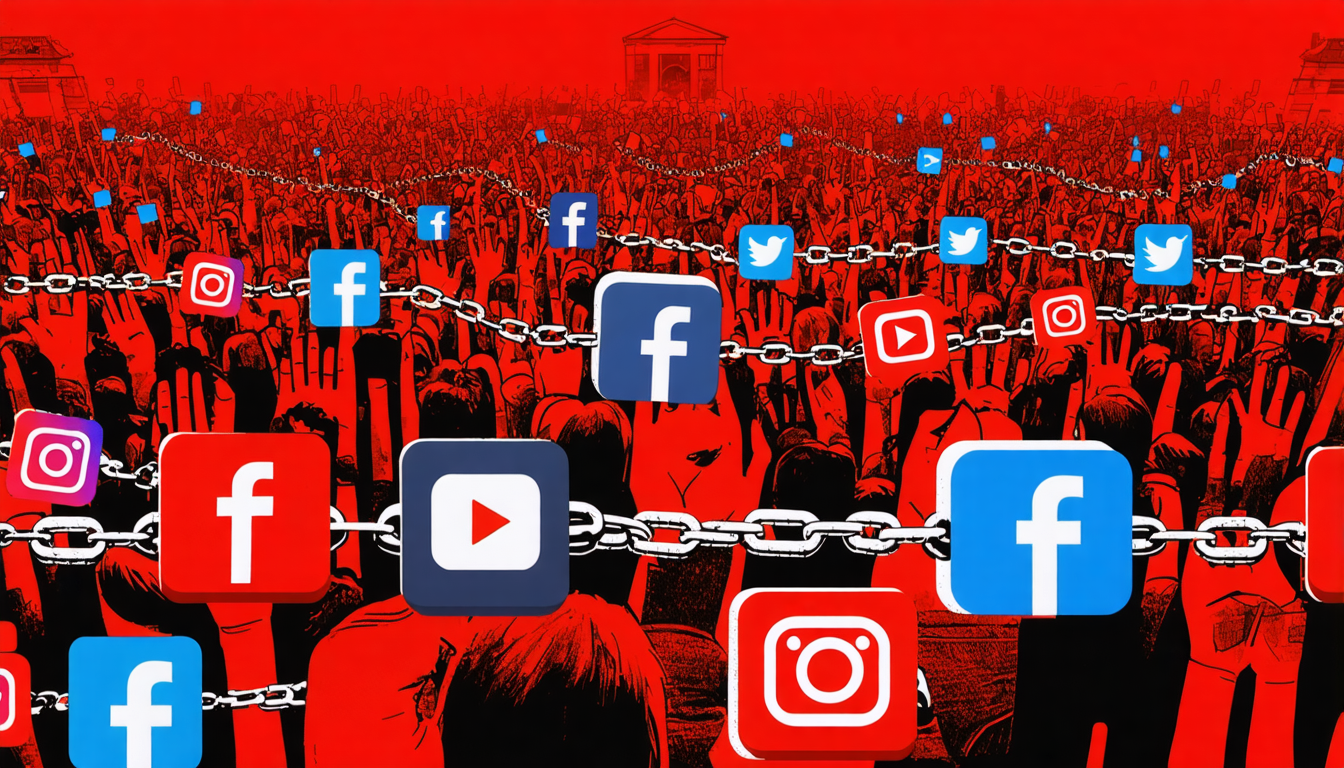The increasing instances of social media blockages pose a significant threat to freedom of expression, a concern that has sparked global debate. These blockages, while often justified as means to maintain public order or security, bring into question the fundamental rights of individuals to communicate and express themselves freely.
In many parts of the world, social media platforms serve as crucial arenas for the exchange of ideas, opinions, and information. They have democratized access to information, bridging gaps across diverse communities and geographies. However, the shutdown of these digital spaces can severely impact the public’s ability to participate in discourse and advocacy, leading to a ‘digital silence’ that could hinder societal progress. According to Radio Tamazuj, freedom of expression forms the backbone of a democratic society, and any restriction could set a damaging precedent.
The implications of social media blockages extend beyond individual freedoms. Businesses that rely on digital communication face disruptions, affecting their operations and leading to economic repercussions. Similarly, journalists and activists may find themselves cut off from tools crucial for mobilizing support and raising awareness about critical issues. This isolation can result in widespread censorship, where only certain narratives are promoted while opposing voices are suppressed.
Reports from various organizations have highlighted instances where governments have employed social media blocks as a tool for control rather than for protection. This raises concerns about accountability and the potential misuse of power. As stated in Radio Tamazuj, transparency and oversight are essential to ensure that such measures are not abused, maintaining a balance between security and freedom.
On a broader scale, social media blockages can disrupt the social fabric, fostering an environment of mistrust and uncertainty. When people are denied platforms for interaction, it can lead to increased frustration and unrest. Moreover, the lack of access to real-time information can hinder emergency responses and the ability to mobilize resources effectively during crises.
The question remains: how can societies safeguard freedom of expression while ensuring security and order? The answer lies in establishing clear guidelines and frameworks that regulate online platforms without infringing on individual rights. Promoting digital literacy and encouraging responsible online behavior can also play a vital role in managing the complexities associated with digital communication.
To conclude, freedom of expression is not merely a privilege but a fundamental right that must be upheld in the face of technological constraints. Preserving this freedom should be a priority for all stakeholders to ensure a just and equitable digital future. The conversation about social media blockage must continue, engaging voices from all sectors to find solutions that respect and enhance the richness of human expression.
